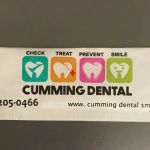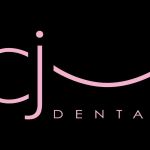Treatment for Tooth Infections After a Dental Procedure
- 1 - What Causes Tooth Infections After a Dental Procedure?
- 2 - Symptoms of Tooth Infections to Watch For
- 3 - How to Treat Tooth Infections Effectively
- 4 - Preventing Future Tooth Infections
- 5 - When to Seek Medical Help for Tooth Infections
1. What Causes Tooth Infections After a Dental Procedure?
After a dental procedure, it's not uncommon for infections to occur, though they are typically rare when proper care is taken. The most common causes include bacteria entering the tooth or surrounding gums during the procedure. Whether it's a filling, root canal, or tooth extraction, the vulnerable area left open or treated can create an opportunity for bacteria to invade. Additionally, poor oral hygiene, weakened immune systems, and even underlying dental issues can contribute to the likelihood of an infection developing.
For example, a patient undergoing a tooth extraction might experience an infection if the extraction site isn't properly cleaned or cared for. The area may become a breeding ground for bacteria, leading to symptoms like pain, swelling, and discomfort.
2. Symptoms of Tooth Infections to Watch For
It's important to monitor the signs of a tooth infection after any dental procedure to prevent further complications. Common symptoms of an infection include:
- Persistent pain that doesn't subside with pain relievers
- Red, swollen, or tender gums near the treated area
- Pus or drainage from the affected area
- Fever and chills, indicating a potential spread of infection
- Bad breath or an unpleasant taste in the mouth
If you experience any of these symptoms, it's crucial to seek treatment immediately. Ignoring these signs can lead to more severe complications, including abscesses or the spread of the infection to other parts of the body.
3. How to Treat Tooth Infections Effectively
Treating a tooth infection usually begins with antibiotics prescribed by your dentist to combat the bacterial infection. In more severe cases, drainage of the abscess or a follow-up procedure may be necessary. Here are some common treatment options:
- Antibiotics: These are commonly prescribed to fight off the infection. Make sure to take the full course of antibiotics as directed, even if you start feeling better before finishing.
- Drainage: If an abscess forms, your dentist may need to drain it to relieve pressure and clear out the pus. This is typically a straightforward procedure, but it may require local anesthesia.
- Root Canal Treatment: If the infection is severe and affects the pulp of the tooth, a root canal may be necessary to remove the infected tissue and seal the tooth to prevent further infection.
- Tooth Extraction: In extreme cases, if the tooth cannot be saved, extraction might be the only option to prevent the spread of infection.
Depending on the severity of the infection, your dentist will recommend the most appropriate treatment to ensure you recover fully. Prompt intervention is key to preventing further complications.
4. Preventing Future Tooth Infections
To reduce the risk of future tooth infections after a dental procedure, follow these simple steps:
- Maintain good oral hygiene by brushing and flossing regularly, especially around the treated area.
- Visit your dentist for regular checkups and cleanings.
- Avoid smoking, as it can delay healing and increase the risk of infection.
- Follow your dentist’s aftercare instructions closely, particularly for the first few days following a procedure.
By adhering to these guidelines, you can significantly reduce the chances of developing another infection and ensure a speedy recovery.
5. When to Seek Medical Help for Tooth Infections
If you experience any of the symptoms mentioned earlier and they do not improve with at-home care, it's time to contact your dentist. Additionally, if you experience increasing pain, swelling that extends to your face or neck, or if you develop a fever, seek medical attention immediately. Prompt treatment is crucial to prevent the infection from spreading to other areas of the body, such as the jaw or bloodstream.
Remember, your dentist is your best resource for both preventing and treating tooth infections. Don't hesitate to reach out if you have concerns or if the infection worsens over time.
For those looking to learn more about dental health or looking for effective products to support their recovery after a dental procedure, feel free to explore our range of dental care products. From post-procedure mouthwashes to specialized oral care kits, we have everything you need to keep your smile healthy and infection-free.







 Kremers, Forbes and Associates DDS5.0 (689 review)
Kremers, Forbes and Associates DDS5.0 (689 review) VCC: The Gary Center2.0 (45 review)
VCC: The Gary Center2.0 (45 review) Hassan Ismail5.0 (1 review)
Hassan Ismail5.0 (1 review) Open Door Family Medical Center- Sleepy Hollow4.0 (215 review)
Open Door Family Medical Center- Sleepy Hollow4.0 (215 review) Cumming Dental Smiles: Bethelview Road4.0 (529 review)
Cumming Dental Smiles: Bethelview Road4.0 (529 review) CJ Dental4.0 (13 review)
CJ Dental4.0 (13 review) The Importance of Oral Health Education During Pregnancy for a Healthy Pregnancy
The Importance of Oral Health Education During Pregnancy for a Healthy Pregnancy Best Tips for Brushing Your Teeth Properly for Healthy Gums: Essential Techniques for Oral Health
Best Tips for Brushing Your Teeth Properly for Healthy Gums: Essential Techniques for Oral Health Why Skipping Dental Checkups Can Lead to Bigger Oral Health Problems
Why Skipping Dental Checkups Can Lead to Bigger Oral Health Problems Advantages of Porcelain Dental Restorations
Advantages of Porcelain Dental Restorations How Can Diabetes Cause Tooth and Gum Problems? Preventing and Managing Oral Health Issues
How Can Diabetes Cause Tooth and Gum Problems? Preventing and Managing Oral Health Issues Healthy Habits for Promoting Good Oral Health and Hygiene: Tips for a Healthy Smile
Healthy Habits for Promoting Good Oral Health and Hygiene: Tips for a Healthy Smile